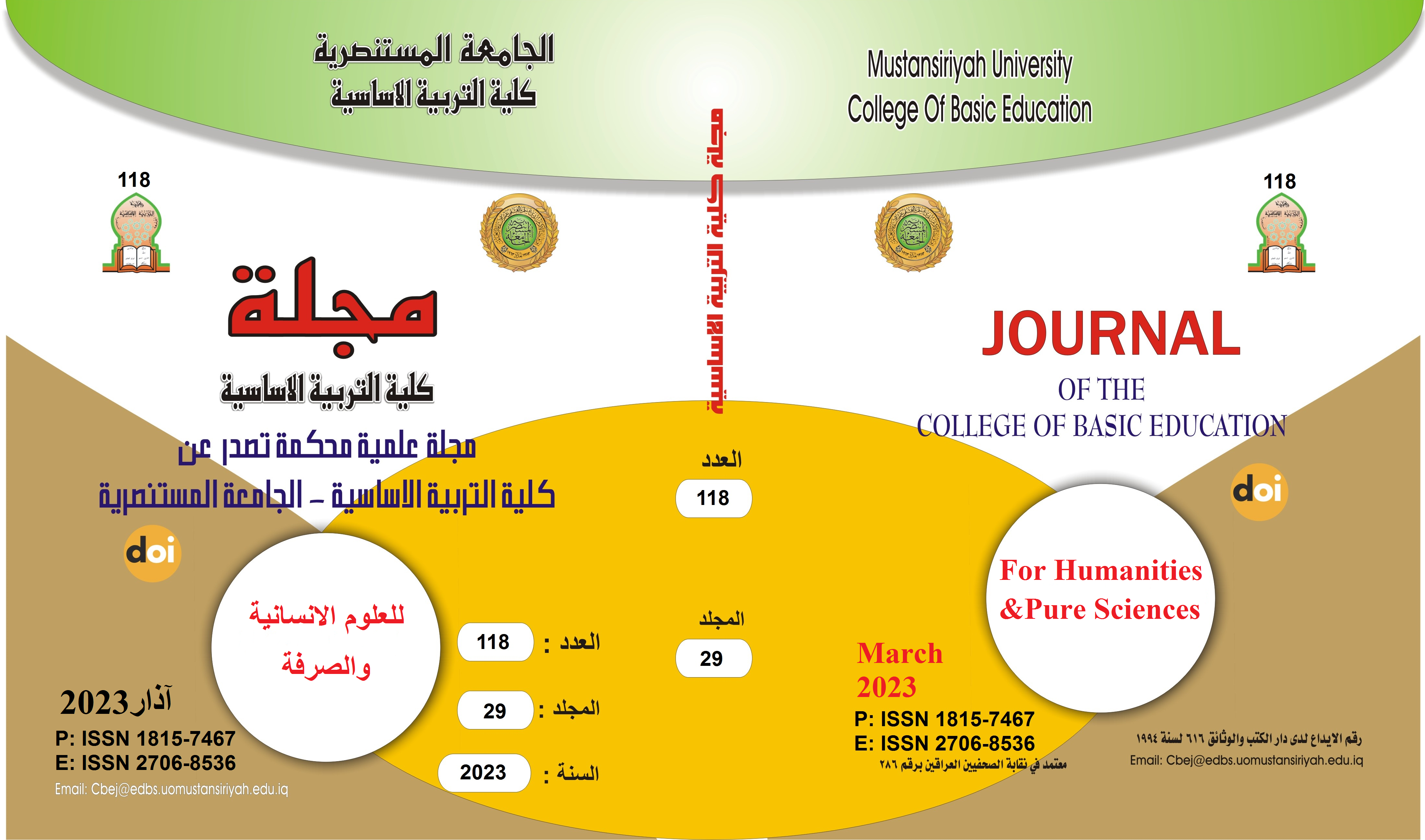(perceived behavioral control of educational counselors) (build an app)
Main Article Content
Abstract
Summary of the research:
The concept of controlling perceived behavior was crystallized with the beginning of the planned behavior theory in the year ((1985)) by the researcher Ajzen, and the roots of this theory go back to the rational action theory in the year ((1975)) prepared by the two researchers Ajzn and Fishbone
(Ajzen & Fhshbein), in the framework in which the individual evaluates his behavior towards a situation or a group of situations, as well as the personal beliefs that he has that contribute to questioning this behavior (Notani, 1998:249), and includes the concept of perceived behavioral control over planning and implementation In addition to evaluation, planning is the guide's ability to prepare in advance and organize each counseling situation. As for implementation, it means the set of practical procedures and practices that the guide performs during the actual performance within the guidance office. The implementation process is considered the practical test of the guide's ability to succeed in his profession. An ability to plan and prepare for the counseling process, but upon implementation it may not achieve the desired goal (Al-Azraq, 2000: 29-30). And since the educational counselors are the backbone and foundation in building society, so the current study aimed to identify the perceived behavioral control of the educational counselors in Baghdad Governorate (first - second - third Rusafa) (first Karkh - second - third) according to the variable (sex, length of service) In order to achieve the objectives of the current research, the researcher built a measure of perceived behavioral control based on the theory of planned behavior (Ajzen), which consists of (28) items, on three areas, and in front of each paragraph there are five alternatives that are a five-fold gradient, where the grade (1) was given to the alternative. (e) measures the trait non-existently, score (2) for alternative (d) which measures the trait to a low degree, score (3) for variant (c) which measures the trait moderately, and score (4) for alternative (b) which measures the trait well, And score (1) for alternative (a), which measures the trait very well. The validity and reliability of the scale have been verified, and the size of the final research sample has reached (400 male and female counsellors), and the results showed the following:
1. The educational counselors in Baghdad governorate enjoy a high level of perceived behavioral control.
2. There are statistically significant differences in perceived behavioral control according to the gender variable (male - female) and years of service from (1-10) and from (11 or more) for educational counselors.
3. There are no statistically significant differences according to the interaction between sex (males-females) and years of service (1-10) and (11 or more) for educational counselors.
Keywords: Perceived behavioral control - educational counsellors
Article Details

This work is licensed under a Creative Commons Attribution-ShareAlike 4.0 International License.
